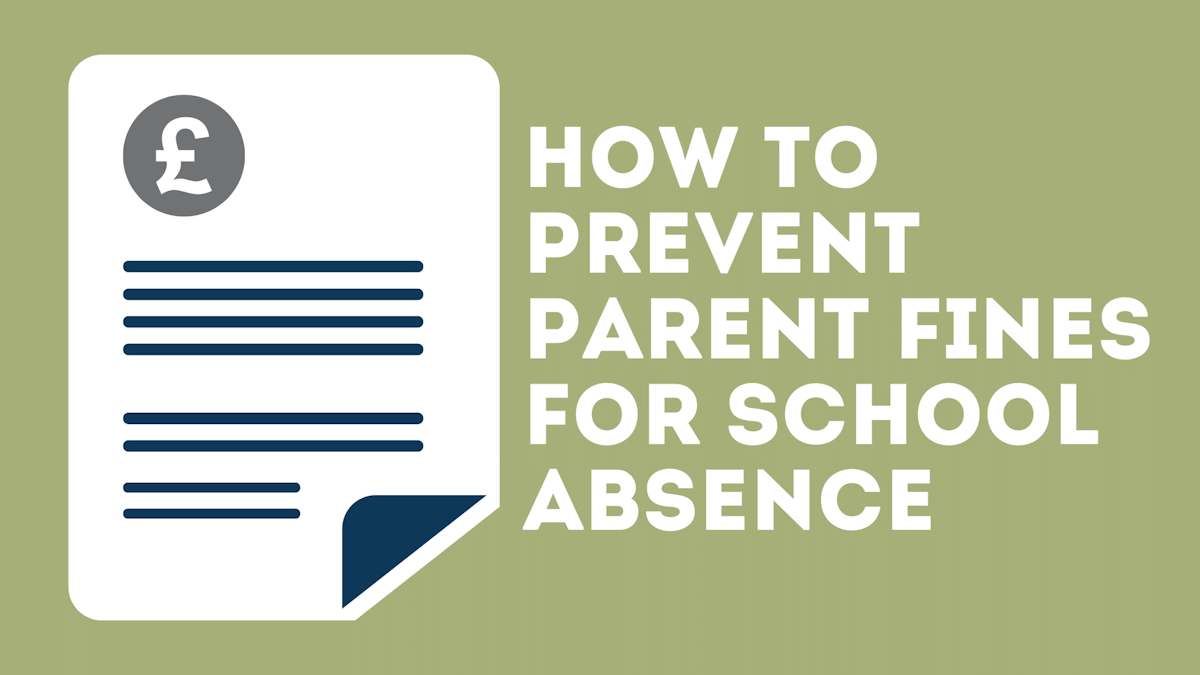Explore insights, updates and real-world impact from across the Studybugs community. From school absence trends to public health innovation, our blog shares stories and ideas that help keep children happy, healthy and in school.
How to Prevent Parent Fines for School Absence

Penalty notices for school absence are increasing from £60 per parent to £80. But for school leaders, fines are generally the absolute last resort. There are a number of avenues of support, both formal and informal, that schools can explore to prevent the need for a fine. Let’s take a look at what they are and when a penalty notice is appropriate.
What Are Penalty Notices For?
Penalty notices are intended to improve attendance and prevent the need for court action. Ultimately, their purpose is to change parental behaviour, so they should only be issued when this is possible and other avenues of support have not worked.
Of course, there are circumstances where support would not have been appropriate and schools may go straight to issuing a fine – most notably term time holidays.
What Triggers a Penalty Notice?
Schools can consider issuing a fine when a child reaches the national threshold – currently 10 sessions of unauthorised absence in a rolling period of 10 school weeks. This could be 10 consecutive sessions of absence, 1 session a week for 10 weeks… basically any combination of unauthorised absence.
Fines should always be the last resort though. Schools are encouraged to consider what support might be appropriate and whether or not a penalty notice is the best tool to improve attendance.
What Can You Do To Prevent Penalty Notices?
School absence is often an indicator of wider issues, so schools should get to the root of why a pupil is missing school. Meeting with the family, setting informal goals, having one-to-one conversations with the child and rewarding attendance are among the options schools can try here. There’s also support available from external agencies if appropriate.
When your options for support have been exhausted, there are other types of legal intervention you can turn to before penalty notices.
Different Forms of Legal Intervention
Attendance Contract
This is a formal agreement between parents and the school or local authority to address attendance issues. It’s not legally binding, but creates a more formal route to securing engagement with a family. The idea is to get all parties to work together, outlining their expectations and discussing what sort of support should be employed.
Education Supervision Order (ESO)
When voluntary options have been exhausted, schools and local authorities can turn to ESOs, a legal intervention without prosecution, made through a Family or High Court. These formalise a set of requirements parents must follow in order to ensure their child receives the full-time education they’re entitled to.
Notice to Improve
This is the final opportunity for parents to engage with support you’re offering. You outline the child’s attendance history, the conditions of improvement (eg no further unauthorised absences), a clear timeframe for this improvement (that must be between 3 and 6 weeks), and what happens if the conditions aren’t met.
Acting Early is Key to Preventing Problems
Obviously, no school wants to have to issue fines for school absence. That’s one reason why it’s so important for staff to act early when a pupil’s attendance is irregular.
We’ve recently introduced automated staff alerts that help you do exactly that. So you can get notified about a pupil’s absences within a timeframe of your choice – for example, 6 sessions in 6 weeks – giving you a chance to intervene before it escalates.
Combine these alerts with a regular schedule of whole-school alerts and you’ll be able to monitor patterns of absence and act early to provide support where necessary.
— Lucas Abbott